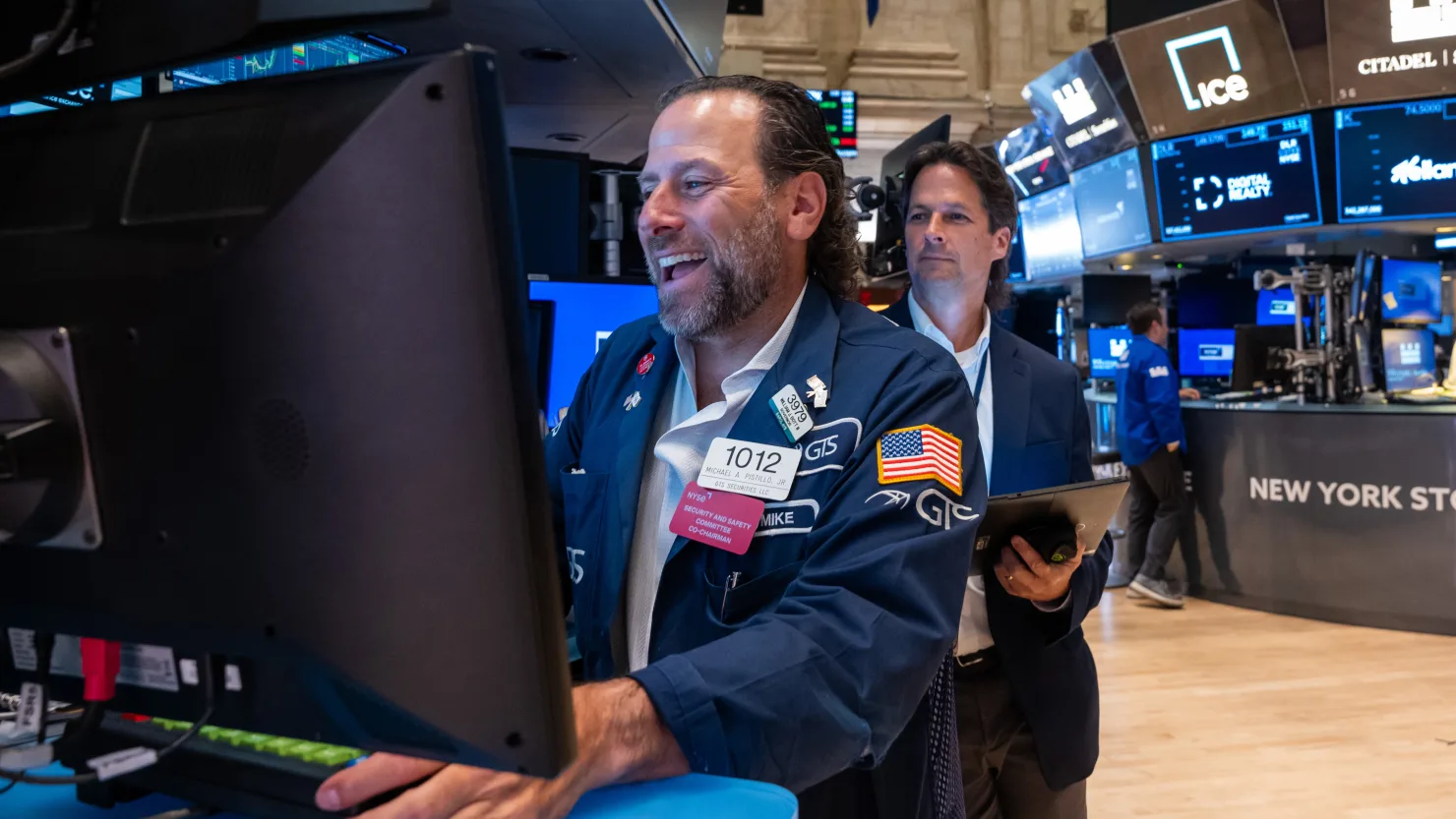Stocks rose Wednesday in a bout of volatile trading, as investors weighed what the latest U.S. inflation data means for Federal Reserve policy. Tech shares led a rebound from steep session lows.
The S&P 500 gained 1.07% to close at 5,554.13. Wednesday marked the first time since October 2022 that the broad market index dropped 1% on an intraday basis and then closed higher by more than 1%.
The 30-stock Dow added 124.75 points, or 0.31%, to end at 40,861.71. At its low, the blue-chip index lost as much as 743.89 points. The Nasdaq Composite added 2.17%, wiping out its earlier losses to close at 17,395.53.
Investors picked up shares of mega-cap tech and semiconductor names in afternoon trading, boosting the Nasdaq as Nvidia jumped 8% and AMD added nearly 5%. The VanEck Semiconductor ETF (SMH) climbed about 5%.
Bank stocks, including JPMorgan Chase and Goldman Sachs, also rebounded from earlier lows and ended the session with marginal gains.
Stocks initially tumbled after the core reading on the consumer price index — which strips out volatile food and energy categories — rose slightly more than expected. This dampened investor hopes for a half-point rate cut from the Federal Reserve. Traders are now pricing in an 85% chance that the central bank will approve a 25 basis-point interest rate reduction at its Sept. 17-18 meeting, according to the CME Group’s FedWatch measure. Overall CPI, however, hit its lowest annualized level since February 2021.
“Taken on its own, [CPI] is not terrible,” said Steve Sosnick, chief strategist at Interactive Brokers. “But what the market did not need was a core reading that was higher than expected. I think it was a big splash of cold water on a market that was hopeful that a 50 basis-point rate cut might be in the cards. Those expectations have all but evaporated.”
The new data comes as investors grapple with seasonal headwinds. September has been the worst month for the S&P 500 over the last 10 years, averaging a loss of more than 1% during that time. The broad-market index has also posted a loss in September in the last four years.
The CBOE Volatility Index briefly traded above 20 before easing back to 18.

